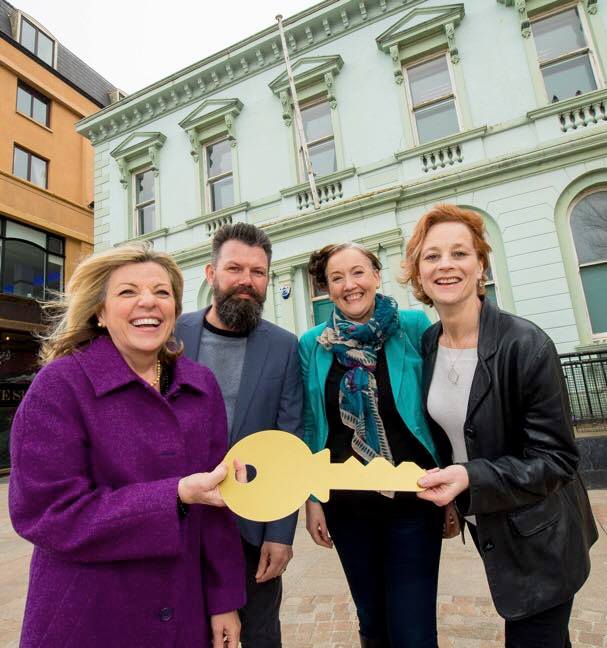
A new DTNI policy advisory paper, Asset-based Development and Community Wealth Building, has just been released, outlining how the land and property assets of the public sector are still not being utilised to their maximum potential, despite being widely recognised as catalysts for economic regeneration.
Community-led development using publicly owned land and property assets has been a significant driver of regeneration across some of the most socially deprived areas of Northern Ireland (NI). Communities have created employment, labour market access, business start-up, and specific supports for social enterprises through the land and property they hold and manage. An overly process-focused public sector, plus a legislative vacuum, means many public assets are either underused, in a state of dereliction, or are sold off to the private sector.
The policy paper, a collaboration with Queens Community and Place, and Trademark Belfast, proposes that a stronger legislative basis for the existing Community Asset Transfer (CAT) policy framework is needed to maximise the potential both of public assets and of the local organisations that seek to manage them. Legislation already exists in England, Scotland, and Wales that supports community organisations to take over publicly owned land or buildings in a way that recognises the public benefits that the transfer will bring.
In NI, despite CAT being recognised as beneficial, there are still too few successful transfers – such as that of Broughshane Police Station, or Bangor Courthouse (pictured above) – and DTNI is calling for the introduction of legislation to make Community Asset Transfer a priority (not an exception), and to ensure that transfers are managed effectively and efficiently. This includes a Community Right to Challenge and Community Right to Buy as applied in other parts of the UK.
DTNI is calling for the NI Executive to make available its public sector asset register (which includes all central and local government assets). This, it argues, should be systematically evaluated to identify a pool of assets with potential for community transfer. Financial resources would be required to underpin the policy overhaul, however there are significant opportunities in the Levelling Up Prospectus, the Community Ownership Fund in particular, as well as in PEACE PLUS.